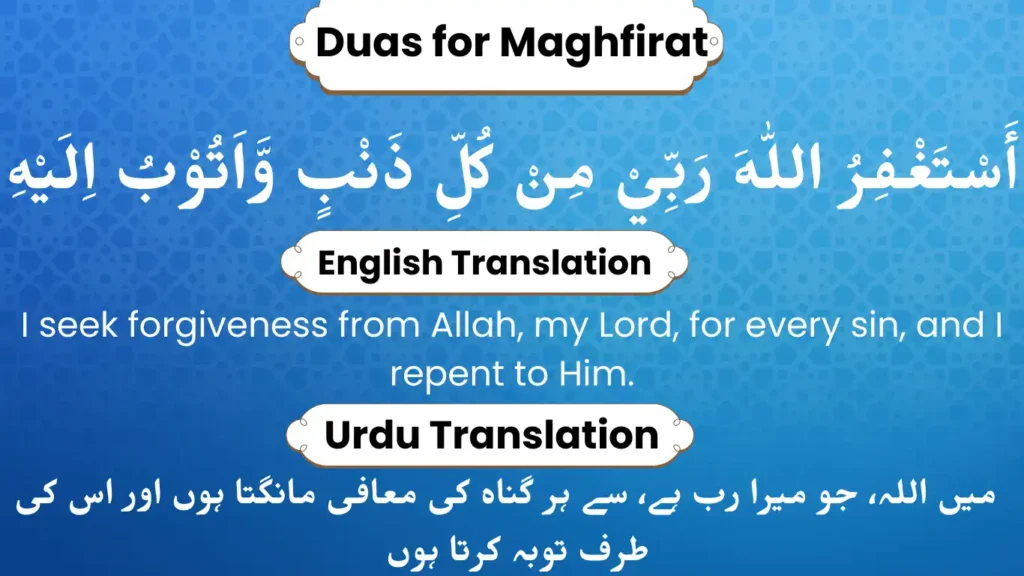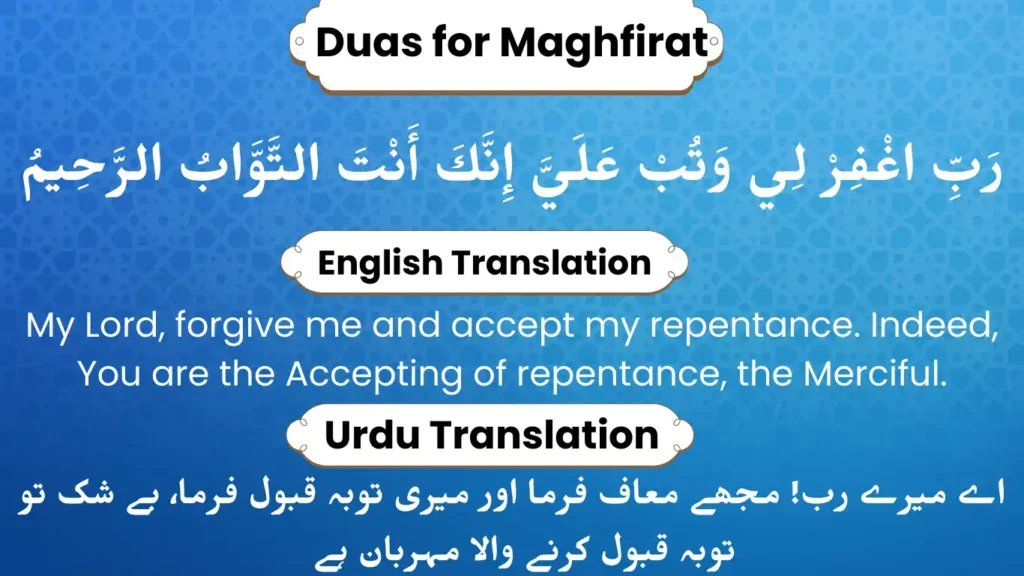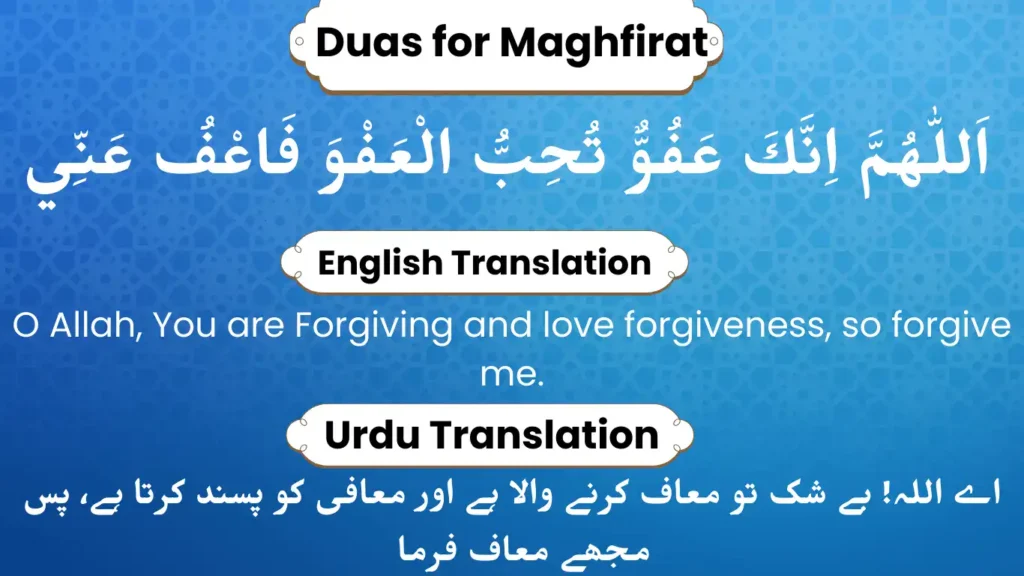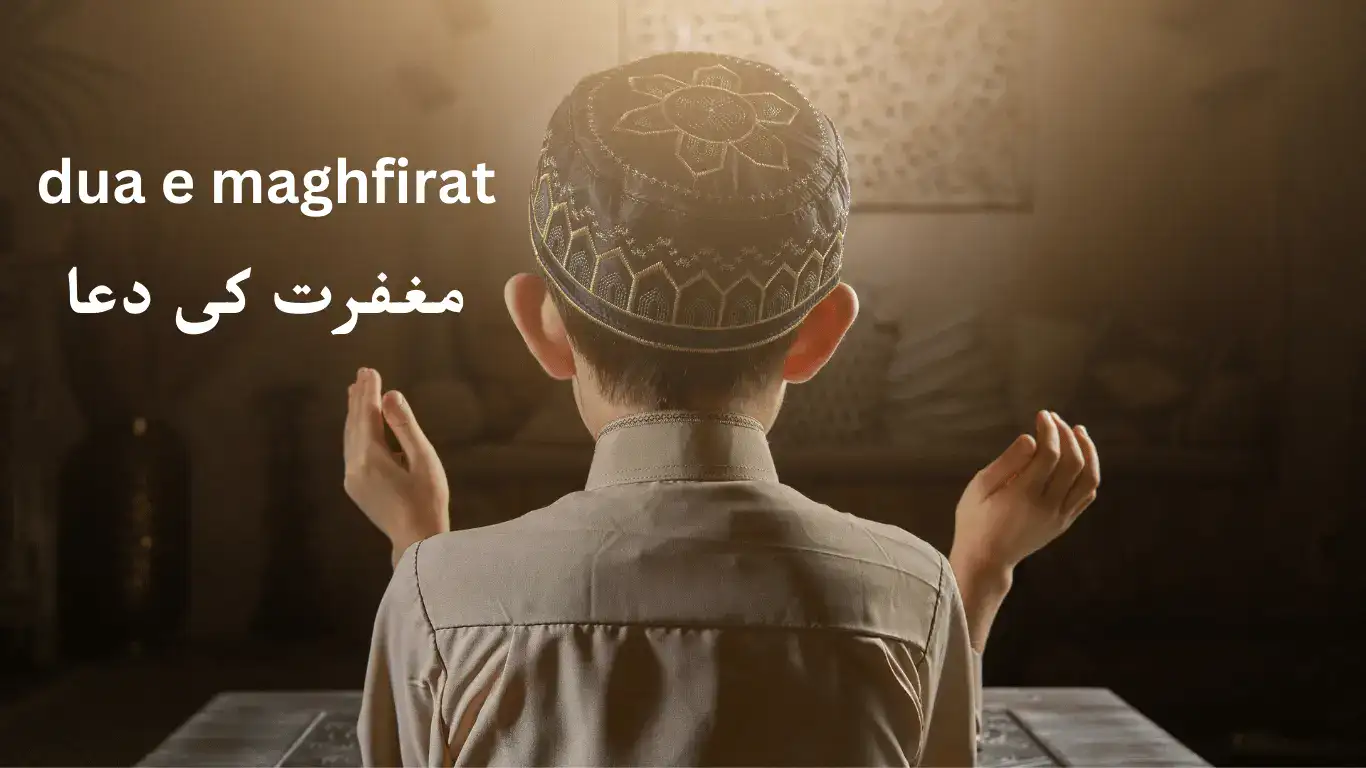Seeking forgiveness from Allah is a vital aspect of a Muslim’s life. In Islam, the concept of Maghfirat (forgiveness) holds significant importance, as it purifies the soul and brings one closer to Allah’s mercy. This article explores various Maghfirat Ki Dua (Duas for forgiveness) that can be recited to seek Allah’s forgiveness for sins and mistakes. By understanding and reciting these supplications, we can open the doors to divine mercy and peace.
Importance of Maghfirat in Islam
Maghfirat, or forgiveness, is not just about seeking pardon for sins; it’s a way to cleanse the heart and soul. Allah, in His infinite mercy, loves those who repent sincerely. In the Quran, Allah says:
“Indeed, Allah loves those who are constantly repentant and loves those who purify themselves.” – (Surah Al-Baqarah 2:222)
This verse emphasizes the importance of turning back to Allah with a humble heart. Asking for Maghfirat is a step toward spiritual growth and righteousness.
Popular Duas for Maghfirat
Here are some powerful Duas for Maghfirat that can be recited daily to seek forgiveness from Allah:
- Astaghfirullah Rabbi Min Kulli Zambin Wa Atoobu Ilaih
Arabic: أَسْتَغْفِرُ اللّٰهَ رَبِّيْ مِنْ كُلِّ ذَنْبٍ وَّاَتُوْبُ اِلَيْهِ

- Rabbighfir Li Wa Tub Alayya Innaka Antat-Tawwabur-Rahim
Arabic: رَبِّ اغْفِرْ لِي وَتُبْ عَلَيَّ إِنَّكَ أَنْتَ التَّوَّابُ الرَّحِيمُ

- Allahumma Innaka Afuwwun Tuhibbul Afwa Fa’fu Anni
Arabic: اَللّٰهُمَّ اِنَّكَ عَفُوٌّ تُحِبُّ الْعَفْوَ فَاعْفُ عَنِّي

The Spiritual Benefits of Reciting Maghfirat Ki Duas
Reciting Maghfirat Ki Duas brings multiple spiritual benefits:
- Purification of the Heart: Regularly seeking forgiveness helps cleanse the heart from spiritual impurities, leading to a purer, more devoted connection with Allah.
- Peace of Mind: Knowing that Allah’s mercy is vast and that He forgives those who sincerely repent brings peace of mind and removes the burden of guilt.
- Protection from Future Sins: Constantly asking for forgiveness instills a consciousness of Allah, which helps avoid future sins and mistakes.
| Pani Peene Ki Dua | Dua for Drinking Water |
| Watu Izzu Mantasha Watu Zillu |
| Karz Ki Dua: Debt Relief in Islam |
| Rizq Ki Dua: Powerful Prayers for Abundance |
Best Times to Recite Maghfirat Ki Duas
- After Every Salah (Prayer): It’s recommended to ask for forgiveness after completing every Salah, acknowledging any shortcomings in the prayer.
- During the Last Third of the Night: This time is particularly blessed, and making Dua at this hour is highly encouraged.
- During Ramadan and Laylatul Qadr: These moments are considered the best times for seeking forgiveness and gaining Allah’s mercy.
Conclusion
Maghfirat Ki Dua is a powerful tool for every Muslim seeking Allah’s forgiveness and mercy. These supplications are easy to recite and can be incorporated into daily life to keep one’s heart connected to Allah. By making these Duas a regular part of your routine, you can continuously cleanse your soul and draw nearer to the Divine.
FAQs:
One of the most popular Duas for Maghfirat is “Astaghfirullah Rabbi Min Kulli Zambin Wa Atoobu Ilaih,” which means, “I seek forgiveness from Allah, my Lord, for every sin, and I repent to Him.” This simple yet profound Dua covers all sins and expresses sincere repentance.
You can recite Maghfirat Ki Dua anytime, but it’s highly recommended to recite it after every Salah, during the last third of the night, and especially during Ramadan and on Laylatul Qadr for maximum spiritual benefits.
If recited with sincere repentance and a true intention to avoid repeating the sins, Maghfirat Ki Dua can lead to Allah’s forgiveness, erasing all sins. Allah’s mercy is boundless, and He forgives those who genuinely seek His pardon.
